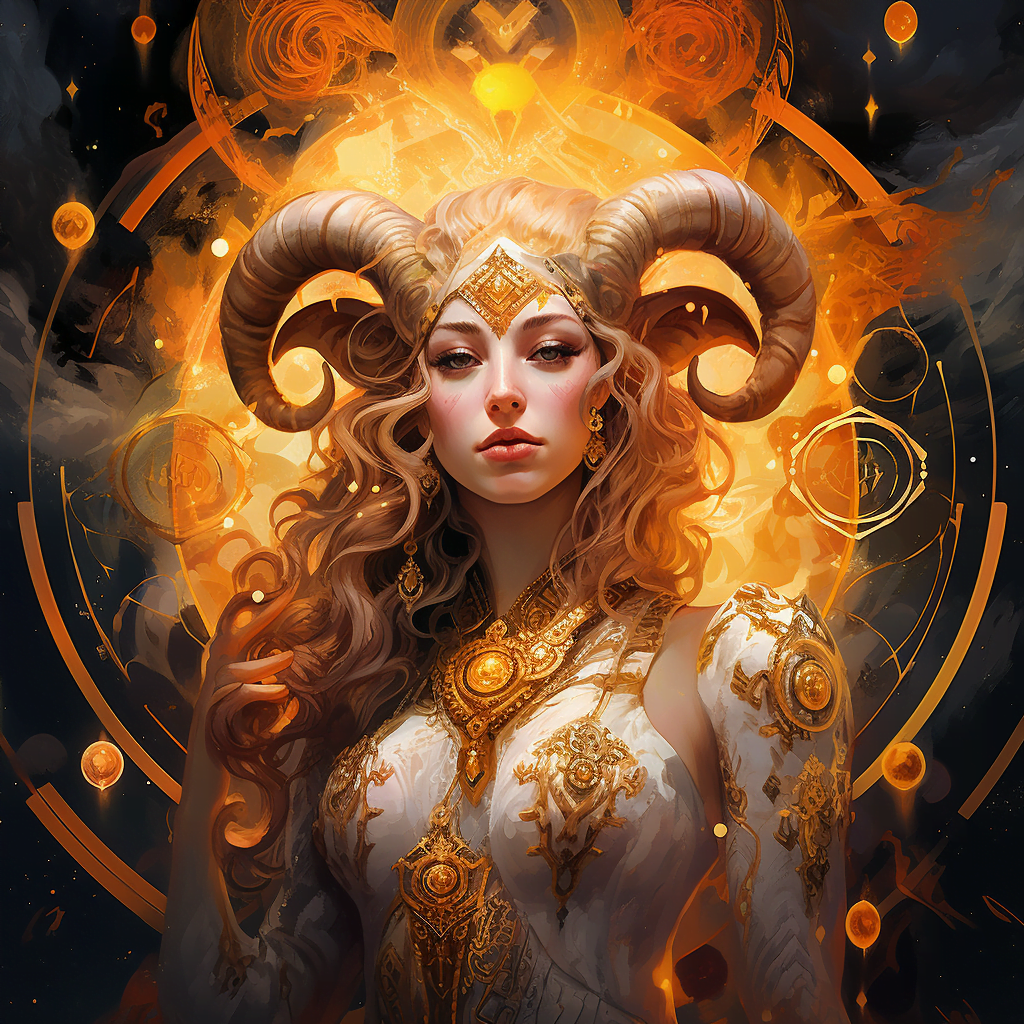In this article, I will explore the origins of the name “Zodiac” and shed light on its connection to astrology. Drawing upon historical sources and linguistic analysis, I will delve into the etymology of the term and unravel the fascinating story behind how the Zodiac came to be known by its distinctive name. By understanding the evolution of this iconic symbol of astrological discourse, we can gain a deeper appreciation for the intricacies of humanity’s ancient fascination with the stars.
The Origins of Astrology
Astrology, a system of knowledge associated with celestial bodies and their perceived influences on human behavior and events, has a long and fascinating history. Its origins can be traced back to ancient civilizations such as Babylon and Greece. These early cultures laid the foundation for the development of astrology as we know it today.
Ancient Babylonian Astrology
One of the earliest known astrological practices can be found in ancient Babylonia, an ancient civilization that thrived in Mesopotamia. The Babylonians were highly skilled astronomers and believed that the positions of celestial bodies had a profound impact on human affairs. They developed a system of astrology known as “judicial astrology,” which involved making predictions based on the positions of planets and stars at the time of a person’s birth.
Greek Influence on Astrology
The ancient Greeks also played a significant role in the development of astrology. Greek philosophers and scholars, such as Plato and Aristotle, were fascinated by the study of celestial bodies and their influence on human life. They incorporated astrological ideas into their philosophy and considered the movements of celestial bodies to be a reflection of divine will.
Greek astrology introduced the concept of the zodiac, a band of the sky divided into twelve equal sections, each associated with a different constellation. These constellations served as markers to track the sun’s apparent path throughout the year. Greek astronomers and astrologers believed that the positions of the sun, moon, and planets within the zodiac influenced human personality traits and life events.
Development of Zodiac Signs
The zodiac signs, which are central elements of astrology, evolved over time. Initially, the zodiac signs were not associated with specific constellations but represented equal divisions of the zodiac. Over the centuries, however, the signs gradually became linked to the constellations through which the sun appeared to pass during different times of the year.
Introduction of the Zodiac
The zodiac, as we know it today, consists of twelve signs, each representing a specific period of time in the solar year. These signs, which are familiar to many as Leo, Taurus, and Pisces, hold particular meanings and characteristics that are believed to influence individuals born under their influence.
The Twelve Zodiac Signs
The twelve zodiac signs are Aries, Taurus, Gemini, Cancer, Leo, Virgo, Libra, Scorpio, Sagittarius, Capricorn, Aquarius, and Pisces. Each sign is associated with certain personality traits, strengths, and weaknesses. Astrologers believe that the sign under which a person is born influences their behavior, attitudes, and even their destiny.
Zodiac Names and Meanings
Each zodiac sign has its own distinctive name and symbolism. The names of the zodiac signs are often derived from ancient myths, legends, or natural elements. For example, Capricorn, represented by a sea-goat, symbolizes ambition and discipline, while Scorpio, depicted by a scorpion, signifies intensity and passion. These names and symbols have become deeply ingrained in astrological interpretations and serve as powerful tools for understanding individuals’ character traits.
Zodiac in Ancient Cultures
While the Babylonians and Greeks laid the foundation for the zodiac system, astrology and the concept of zodiac signs also found their way into other ancient cultures, each of which added their own unique perspectives and interpretations.
Mesopotamian Influences on Zodiac
The influence of the Mesopotamian civilization on the zodiac system cannot be understated. The Babylonians, who inhabited the region now known as Iraq, played a crucial role in developing and popularizing astrology. Their astrological practices, which were centered around the observation of celestial bodies, had a significant impact on subsequent civilizations.
Egyptian Contributions to Zodiac
In ancient Egypt, the zodiac played an important role in religious and astrological beliefs. The Egyptians associated each zodiac sign with one of their gods or goddesses, believing that individuals born under a particular sign possessed characteristics aligned with that deity. For example, those born under the sign of Aries were believed to embody the spirit of the god Amun-Ra, representing leadership and strength.
Chinese and Indian Zodiac Systems
In addition to the Babylonians, Greeks, and Egyptians, other ancient cultures developed their own zodiac systems. The Chinese zodiac, for instance, follows a twelve-year cycle, with each year associated with an animal sign. Similarly, the Indian zodiac system, known as the Vedic astrology, places great importance on the positions of celestial bodies at the time of a person’s birth.
The Etymology of Zodiac
The term “zodiac” has its roots in ancient languages and cultures. Its etymology sheds light on its origins and the cultural significance attached to this astrological concept.
Zodiac: A Greek Term
The word “zodiac” is derived from the Greek term “zodiakos kyklos,” which translates to “circle of animals.” This reflects the early association of the zodiac signs with various animal symbols. The Greeks believed that the positions of celestial bodies within the zodiac influenced the destiny and personality of individuals.
Zodiac’s Latin Origins
Although the term “zodiac” has Greek origins, it was the Romans who popularized the use of the zodiac signs in astrology. The Roman adaptation of Greek astrology spread throughout the Roman Empire and eventually merged with other astrological traditions. The influence of Roman culture ensured that the zodiac became deeply integrated into Western astrology.
The Zodiac and the Zodiacal Constellations
While the zodiac signs bear the names and symbolic representations of certain constellations, there has been a gradual shift in the alignment of these signs with the actual constellations in the night sky.
Alignment of Zodiac Signs with Constellations
Originally, the zodiac signs were aligned with the constellations that they were named after. For example, Aries was associated with the constellation Aries, and Taurus with the constellation Taurus. However, due to a phenomenon called precession, which causes the Earth’s axis to slowly wobble over time, there has been a gradual shift in the alignment of the signs with the constellations.
Shifts in Zodiac Constellations Over Time
Over the centuries, the positions of the zodiac signs have moved in relation to the actual constellations in the night sky. This means that someone born under the sign of Aries, for instance, would not necessarily have the constellation Aries behind the sun during their birth month. This discrepancy between the zodiac signs and the constellations has led to ongoing debates and discussions among astronomers, astrologers, and skeptics alike.
Early References to the Zodiac
Throughout history, various references to the zodiac can be found in ancient texts and artifacts, providing evidence of its enduring presence in human culture.
The Dendera Zodiac
One remarkable artifact dating back to ancient Egypt is the Dendera Zodiac, which can be found on the ceiling of the Hathor temple in Dendera. This beautifully designed and intricately carved circular relief portrays the zodiac signs alongside various Egyptian deities. It is considered one of the earliest known representations of the zodiac and offers valuable insights into the beliefs and practices surrounding astrology at the time.
Zodiac References in Ancient Texts
The zodiac is mentioned in numerous ancient texts, including those of Greek, Roman, Egyptian, and Babylonian origin. These references provide glimpses into how the zodiac was perceived and utilized in different cultures throughout history. From astrology being used to determine personal traits and fate to its association with religious beliefs, the zodiac has always held a significant place in human consciousness.
Zodiac and Western Astrology
In Western astrology, the zodiac holds great importance, serving as a fundamental component in making astrological predictions and interpretations. The zodiac signs, with their associated characteristics and meanings, have become essential tools for astrologers in analyzing personality traits and predicting future outcomes.
The Importance of Zodiac in Western Astrology
Western astrology places significant emphasis on the zodiac signs and their corresponding traits. Astrologers believe that the zodiac signs provide valuable insights into an individual’s personality, behavior patterns, and even compatibility with others. By studying the positions of celestial bodies within the zodiac at the time of a person’s birth, astrologers can make predictions and offer guidance based on the unique combination of zodiac signs present in an individual’s birth chart.
Use of Zodiac Symbols in Western Horoscopes
In Western horoscopes, the zodiac signs are often represented by their respective symbols, such as the ram for Aries or the scales for Libra. These symbols are widely recognized and serve as a visual shorthand for astrological meaning. They are incorporated into newspapers, magazines, and online platforms, providing daily horoscopes and general astrological guidance to a wide audience.
Role of the Zodiac Today
Despite its ancient origins, the zodiac continues to play a significant role in modern culture and various fields of study. Its influence extends beyond the realm of astrology, touching on areas such as psychology, entertainment, and even marketing.
Popularity of Zodiac in Modern Culture
The zodiac has gained immense popularity in modern culture. Many people identify strongly with their zodiac sign and find comfort and guidance in astrology. Zodiac-themed merchandise, ranging from clothing to home decor, can be found in abundance, catering to those who embrace their astrological identity.
Applications of Zodiac in Various Fields
The influence of the zodiac extends beyond personal beliefs and cultural fascination. The zodiac signs and their associated traits are often utilized in fields such as psychology, where they serve as a tool for understanding personality types and behavior patterns. Additionally, businesses and marketers sometimes draw on zodiac sign characteristics to tailor products and services to specific target audiences.
Criticism and Skepticism
While the zodiac holds great significance for many individuals, it has been subject to criticism and skepticism from various quarters, including scientists and skeptics.
Scientific Critiques of Astrology and Zodiac
Many scientists argue that astrology lacks empirical evidence and falls outside the realm of scientific inquiry. The predictive claims of astrology are often criticized as being based on subjective interpretations rather than objective data. Skeptics argue that there is no scientific basis for the influence of celestial bodies on human behavior or the accuracy of astrological predictions.
Controversies Surrounding Zodiac’s Influence
The influence of the zodiac has also sparked controversies and debates. Some individuals view the zodiac as a valuable tool for self-reflection and personal growth, while others dismiss it as mere superstition. The ongoing discussions surrounding the validity and accuracy of astrology and the zodiac reflect the diverse perspectives and opinions held by individuals across the globe.
Conclusion
The origins of astrology and the zodiac can be traced back to ancient civilizations such as Babylon and Greece. Over time, the zodiac signs gained cultural significance and found their way into various ancient cultures, each adding their own unique interpretations. Despite debates and controversies, the zodiac remains an important aspect of Western astrology and continues to captivate people’s imagination in modern culture. Its intricate history, diverse symbolism, and ongoing influence demonstrate the enduring power and fascination of the zodiac.



